
CSSD WG Director Talk in the UK: Human Rights in the Menstrual Movement: Reductionism and Renewed Potential from Below
Human Rights in the Menstrual Movement: Reductionism and Renewed Potential from Below

Two Day-Conference: Conception and Its Discontents: Public Humanities, Explorations in the Medical Humanities
Two Day-Conference: Conception and Its Discontents: Public Humanities, Explorations in the Medical Humanities organized by the Motherhood and Technology Working Group

From Cynegetic Power to Cryopolitics: Hypotheses on the Biopolitics of Virus Hunters
Lecture by Frédéric Keck, École des Hautes Études en Sciences Sociales co-organized by the Recovery working group.
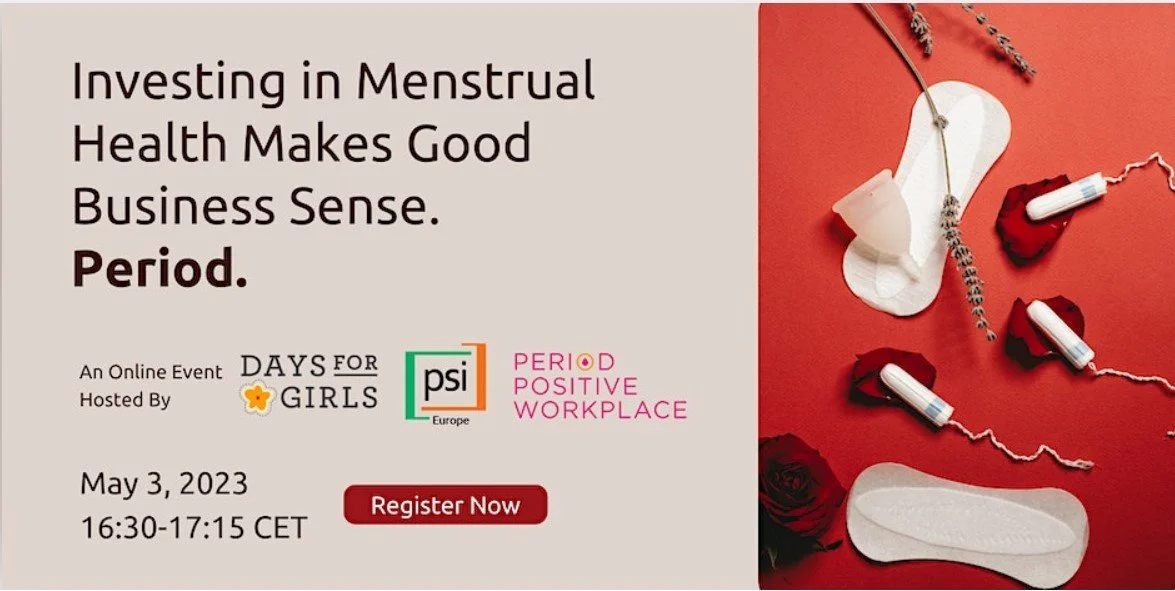
Working with your Period: Individual and Structural ways for Menstruators to Be More Productive
Menstrual Health and Gender Justice working group co-director Lauren Houghton delivered her presentation, “Working with your Period: Individual and Structural ways for menstruators to be more productive” at the PSI and Days for Girls Webinar, Investing in Menstrual Health Makes Good Business Sense. Period. There were 92 attendees from Europe, Asia and Africa.
Click here to watch the recording.
About this event
This webinar focuses on why it is beneficial to prioritize menstrual health at work. Learn how promoting menstrual health and hygiene (MHH) in the workplace can positively impact productivity, self-care, and overall well-being. Menstrual health experts will provide insights from the latest research and data, sharing best practices that can promote supportive menstrual health environments in the workplace. Don't miss this opportunity to learn why investing in menstrual health at the workplace can advance gender equity, boost employee satisfaction and retention, and improve business performance.
Speakers:
Dr. Ekua Yankah, Brands on a Mission
Dr. Lauren Houghton, Columbia University Mailman School of Public Health
Neville Okwaro, Ministry of Health WASH Hub-Kenya
Pooja Singh, General Manager – HR (Lead HR), PSI India Private Limited
Dr. Deborah Maufi, PSI Europe (Facilitator)

Cash as Technology of Motherhood: Findings from a Clinical Trial of Poverty Reduction
A growing body of small-scale studies documents that the cognitive and brain development of low-income children differs from that of children in higher-income families. At the same time, a large body of social science research has found disparities by income in measures of children’s achievement, school performance, and learning-related behaviors, such as attention and self-regulation. Developmental scientists agree that poverty is especially likely to shape children’s early development because of the high plasticity and rapid growth of the brain during the first years of life.
Baby’s First Years is the first causal study to test the connections between poverty reduction and brain development among very young children. One thousand low-income mothers and their newborns were recruited in several ethnically and geographically diverse communities. Mothers are receiving either (1) $333 each month ($4,000 each year), or (2) $20 each month ($240 each year), for the first 76 months of the children’s lives, with the first payments occurring shortly after the baby’s birth.
In her talk, "Baby's First Years: A Clinical Trial of Poverty Reduction," senior author of the study and neuroscientist Professor Kimberly Noble will discuss Baby's First Years' recent findings and their implications both for science and social policy. Professor Jane Waldfogel, Professor for the Prevention of Children’s and Youth Problems at the Columbia University School of Social Work and co-Director of the Columbia Population Research Center, will give comments.

Beyond Dystopia Roundtable
The second piece of a two-part event, the Beyond Dystopia Roundtable follows the Dry Ground Burning film screening on Friday, April 28.

Film Screening: Dry Ground Burning
This film screening is the first piece of a two-part event, and will be followed by the Beyond Dystopia Roundtable on Saturday, April 29.

Feminist Intersectional Science and Technology Studies (FISTS) Conference
Conference Panel: With and Against Technoscience in the Aftermath

Refugee Cities: Symposium on the Urban Dimensions of Forced Displacement
The Refugee Cities Working Group at the Center for the Study of Social Difference, Columbia University, presents an interdisciplinary public symposium, “Refugee Cities: Urban Dimensions of Forced Displacement.”

Conference Keynote: With and Against Technoscience in the Aftermath | Professor M. Murphy (UToronto)
Join us for our first Feminist Intersectional Science and Technology Studies Conference
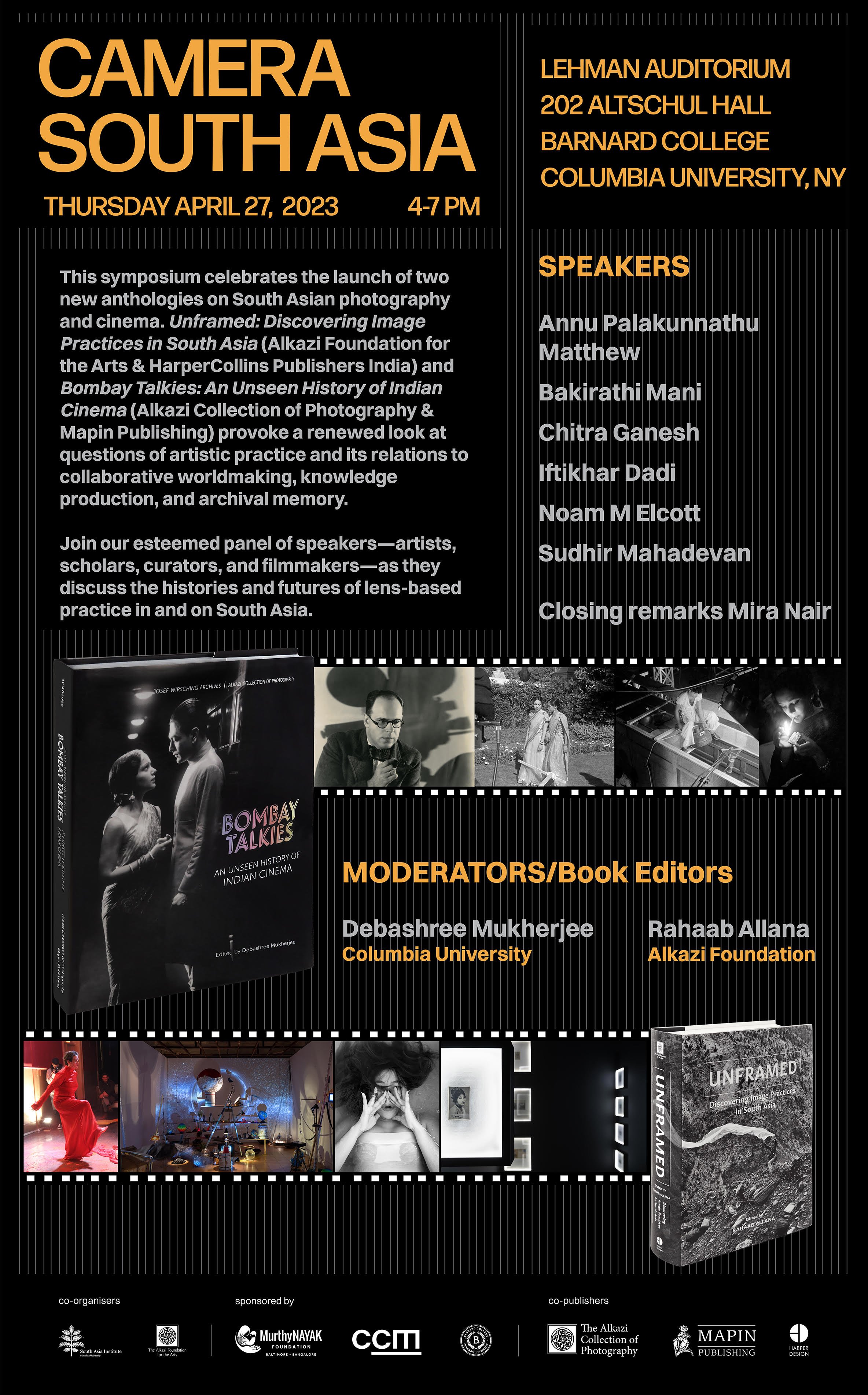
CAMERA SOUTH ASIA: A Symposium on cinema and photography
Camera South Asia celebrates the launch of two new anthologies on South Asian photography and cinema

Putting Race to Work: Neoliberal Development in the US Virgin Islands
Book Discussion: Putting Race to Work: Neoliberal Development in the US Virgin Islands

Comrade Sisters: Women of the Black Panther Party Book Celebration
Barnard welcomes Ericka Huggins, photographer Stephen Shames, Angela LeBlanc-Ernest, and former members of the Black Panther Party, Yasmeen Majid and Claudio Chesson-Williams, to Barnard College in celebration of the new book Comrade Sisters: Women of the Black Panther Party. Our panelists will talk about the diverse and crucial roles women played in the Black Panther Party, followed by a moderated Q&A and book signing. Free and open to the public (in person and online).
RSVP for non-Barnard/Columbia community members and Zoom attendees is required.

Unsilencing Slavery: A Celebration of Celia E. Naylor’s New Book
Celia E. Naylor (Professor of Africana Studies and History, Barnard College) will be joined by Natasha Lightfoot (Associate Professor of History, Columbia University) to discuss Naylor’s new book,
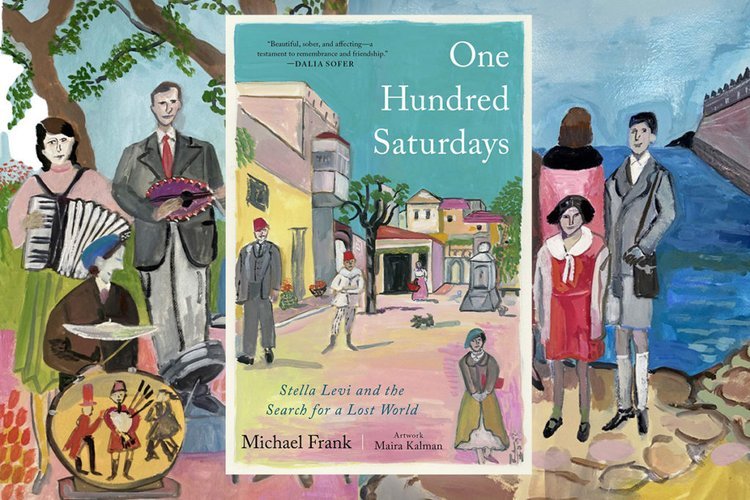
Yom HaShoah Book Talk: Michael Frank, "One Hundred Saturdays: Stella Levi and the Search for a Lost World" with Holocaust Survivor Stella Levi
Join the Institute for a book talk with Michael Frank, author of One Hundred Saturdays: Stella Levi and the Search for a Lost World, in conversation with Holocaust survivor Stella Levi. This event is in-person at IIJS.

17th Annual Clery Lecture Series: The Importance of Intersectionality: Considering the Role of Diverse Identities in the Dialogue on Sexual Assault
As part of the Jeanne Clery Lecture Series, the 17th annual lecture will focus on the broad theme of "believe survivors" in the context of intersectionality. Although there has been much discourse regarding the narratives of those who have experienced sexual violence, the conversation has not centered on the experiences and perspectives of individuals from marginalized communities. Through this event, we hope to explore the disparities in accessing resources for people with different identities and how we might amplify their voices.
The Jeanne Clery Lecture Series was established by Constance Clery BC '53 and Howard Clery, Jr. in memory of their daughter, Jeanne Clery.
This event is sponsored in part by Being Barnard, and Health & Wellness at Barnard.
Register on Eventbrite: https://clerylectureseries-BarnardCollege.eventbrite.com

What We Could Do: The Zip Code Memory Project in Conversation with Related NYC Pandemic Initiatives
Please join us as we wrap up and reflect on our project and meet related New York City Pandemic Initiatives.

WORKSHOP: SPOKEN CINEMA: VOICES, SOUNDS & IMAGES
WORKSHOP: Love in the Time of Hypercapitalism

ARTIST TALK: SPOKEN CINEMA: VOICES, SOUNDS & IMAGE
Artist Talk with Paromita Vohra: Gardens of Pleasure Feminism, Desire and Doing Documentary Work in (for) South Asia
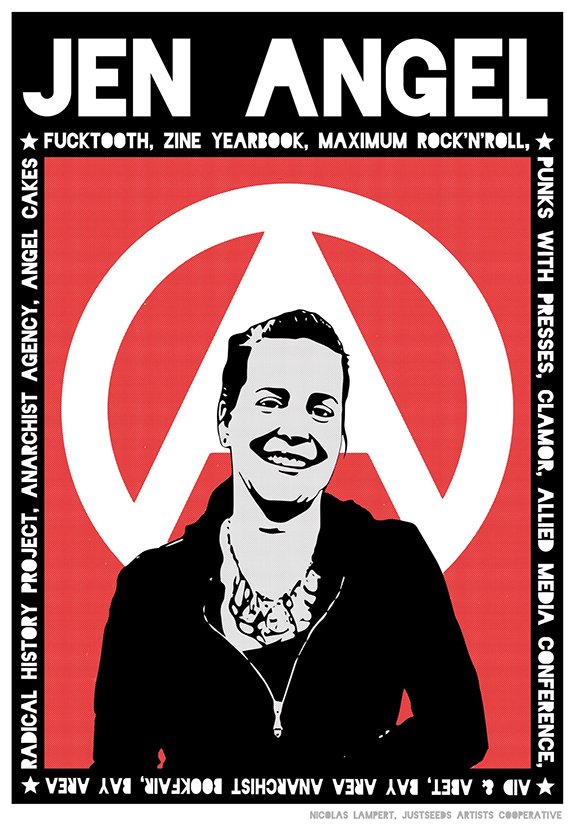
Remembering Independent Media Activist Jen Angel
Join us on Friday, March 31st, at Barnard College, to celebrate the life and legacy of one of the zine community’s beloved figures.

The Inaugural Norma Merrick Sklarek Lecture at Barnard College
Sara Zewde of Harlem-based Studio Zewde will give the inaugural Norma Merrick Sklarek Lecture at Barnard College on Wednesday, March 29. The Norma Merrick Sklarek Lecture honors Barnard alumna Norma Sklarek, one of the first Black women architects in the US, by inviting current groundbreaking and influential designers to campus to be in dialogue with our community. Following Sara Zewde’s presentation, alumna Elsa MH Mäki CC’17 will moderate an expanded conversation. Karen Fairbanks, Claire Tow Professor of Professional Practice and Chair of the Architecture Department, will introduce the event, and the program will be followed by a wine and cheese reception.
Sara Zewde is founding principal of Studio Zewde, a design firm in New York City practicing landscape architecture, urbanism, and public art. Named to Architectural Digest's AD100 and an Emerging Voice by the Architectural League of New York, the firm is celebrated for its design methods that sync culture, ecology, and craft. In parallel with practice, Sara serves as Assistant Professor of Practice at Harvard University Graduate School of Design and is currently writing a book on her research retracing Frederick Law Olmsted's journeys through the Slave South. Sara holds a Master in Landscape Architecture from the Harvard University Graduate School of Design, a Master in City Planning from MIT, and a Bachelor of Arts in Sociology and Statistics from Boston University.
Norma Merrick Sklarek attended Barnard in 1944-45 and graduated from Columbia with a Bachelor of Architecture in 1950. In 1980, she became the first Black woman elected to the American Institute of Architects College of Fellows. Breaking barriers throughout her career, her influence continues to resonate today.
The Norma Merrick Sklarek Lecture is sponsored by The Barnard Architecture Department and has been made possible through the generous funding of the IDC Foundation with additional support from the Barnard Provost’s Office.
Register Here: Link
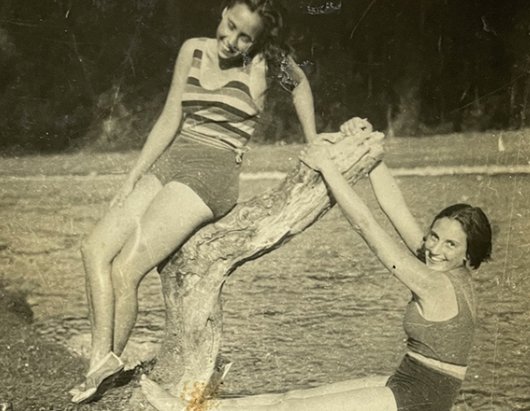
Jewish Female Mental–Health Professionals between Poland, the Nazis, and America: Memory, History, and Interpretation
Jewish Female Mental–Health Professionals between Poland, the Nazis, and America: Memory, History, and Interpretation

Screening: Together, Not Alone | Queens World Film Festival
Join us for local screenings of the documentary TOGETHER, NOT ALONE, accompanied by Covid stories in the form of short films, oral history video projects, commissioned micro-docs and photo journalism from the front-lines of the five boroughs. With gratitude, we will serve food from local restaurants that fed the community during the worst of the Covid-19 lockdown.

Screening and Roundtable: Together, Not Alone
Join us for local screenings of the documentary TOGETHER, NOT ALONE, accompanied by Covid stories in the form of short films, oral history video projects, commissioned micro-docs and photo journalism from the front-lines of the five boroughs. With gratitude, we will serve food from local restaurants that fed the community during the worst of the Covid-19 lockdown.

COVID Three Years Later: Together Not Alone
Please join the ZCMP to mark the third anniversary of the Covid-19 pandemic at a special event at the Museum of the City of New York, featuring a screening, roundtable, and day-long performance centered around the uptown New York City premiere of the Zip Code Memory Project film, Together, Not Alone.
Register Here to reserve a spot. Please use the main Fifth Avenue entrance for "Talk to the Future," followed by the film. If you are only attending the film and discussion, use the 104th St entrance between Fifth and Madison. You can enter for free with our pre-registration.
3:00 PM — 4:30 PM
Uptown New York City premiere of Together, Not Alone, panel discussion and refreshments
Together, Not Alone, 2022, a short film directed by Gabriella Canal and Judith Helfand, shows how a group of strangers from across three New York City neighborhoods—different ages, races, socio-economic backgrounds, work, and life experiences – come together after months of Covid-19 isolation to explore, map, paint, shape, recall and bear witness to each other’s zip code-determined struggles and imagine justice and repair.
Panel discussion What Have We Learned and Can We Do Better? with Judith Helfand and Gabriela Canal, filmmakers; Nancy Ko, Columbia student; Marie Nazon, social worker, CCNY; and Marianne Hirsch, Project Co-Director.
11:30 AM — 3:00 PM
Talk to the future – A durational participatory performance with Maria José Contreras
The artist invites visitors to step into an imagined time capsule and respond to the question: “What should future generations know about Covid?” Contreras listens carefully to participants and then inscribes their words verbatim on the time capsule.
Talk to the Future, photo by Diana Taylor
This event is co-sponsored by the Society of Senior Scholars at the Heyman Center for the Humanities at Columbia University.

